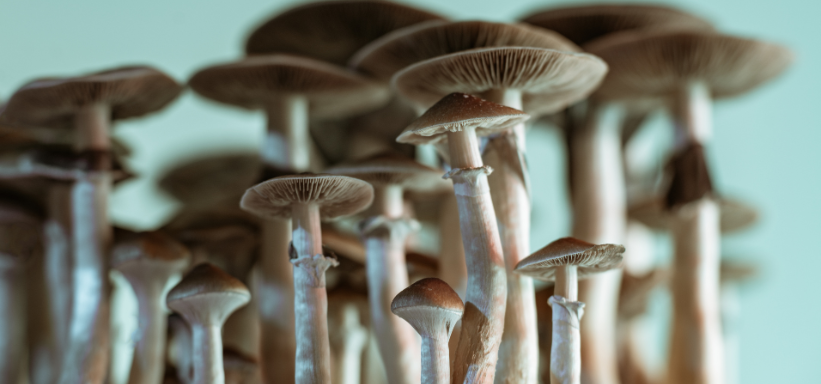Depression isn’t just a bad mood—it’s a deeply rooted medical condition that often runs in families.
For some, it’s triggered by stress or trauma. For others, it seems to arrive out of nowhere—an invisible weight that settles in and refuses to lift. If you’ve ever wondered why depression seems to affect certain families more than others, you’re not alone.
Research shows that genetics can influence your risk of developing depression, especially if a parent, sibling, or grandparent has been diagnosed. But a higher risk doesn’t mean you’re destined to experience it.
Understanding your genetic background is the first step toward protecting your mental health. In this guide, we’ll explore the science behind inherited depression, how family history shapes your risk, and what you can do to take control—starting today.

What Is Depression?
Depression is more than feeling sad—it’s a complex medical condition that affects how a person thinks, feels, and functions. It can impact sleep, appetite, concentration, and the ability to carry out everyday tasks. While everyone experiences moments of sadness or stress, clinical depression lasts longer, feels more intense, and interferes with daily life.
Common Symptoms of Depression

- Persistent feelings of sadness, emptiness, or hopelessness
- Loss of interest in activities once enjoyed
- Fatigue or lack of energy, even after rest
- Difficulty concentrating or making decisions
- Changes in appetite or weight
- Sleep disturbances (too much or too little)
- Thoughts of worthlessness, guilt, or suicide
Depression can look different from person to person. Some may feel numb or emotionally flat, while others may experience intense emotional pain or panic. For some, symptoms are triggered by life events. For others, there may be no clear cause—which is where genetics often comes into play.
Understanding depression as a medical and genetic condition, not a personal weakness, is critical to seeking help and finding the right treatment.
Is Depression Genetically Inherited?
When depression seems to run in the family, it’s not just coincidence—it may be genetically linked. Decades of research suggest that depression has a heritable component, meaning traits that contribute to the disorder can be passed down from one generation to the next.

What Does the Research Say?
According to global health data, depression affects over 280 million people. Studies show that individuals with a first-degree relative (like a parent or sibling) diagnosed with depression are two to three times more likely to develop the condition themselves.
However, it’s important to understand that no single gene causes depression. Instead, it’s the result of multiple genes interacting with environmental factors—such as trauma, chronic stress, or life changes—that increase a person’s susceptibility to the condition.
Inherited Risk Isn’t Destiny
Just because depression runs in your family doesn’t mean it’s unavoidable. Genetics may create a baseline vulnerability, but lifestyle choices, support systems, and timely intervention play a powerful role in how—or if—depression shows up.

- Monitor early warning signs
- Prioritize mental wellness
- Seek support before symptoms escalate
- Explore alternative or advanced treatments if traditional options fall short
How Genetics And Environment Work Together In Depression
Depression doesn’t develop in a vacuum. While genetics can increase your vulnerability, it’s often life circumstances that activate those inherited risks. This combination of nature and nurture is what makes depression so complex—and so personal.
The Role of Environment in Triggering Genetic Risk


Even if you carry genetic markers linked to depression, you may never experience symptoms—unless certain environmental stressors come into play. These triggers can include:
- Chronic stress from work, finances, or caregiving
- Trauma such as loss, abuse, or childhood adversity
- Major life transitions like divorce, job loss, or becoming a parent
- Loneliness or social isolation
- Seasonal factors like shorter days and reduced sunlight (as seen with Seasonal Affective Disorder)
When these stressors pile up, they can disrupt brain chemistry, reduce emotional resilience, and over time, activate depressive symptoms in someone who may already be genetically predisposed.
How Depression Affects the Brain

Emerging science shows that depression can weaken neural connections in areas of the brain responsible for mood regulation, decision-making, and memory. These changes can make it harder to bounce back from stress or feel joy, even in positive situations.
Treatments like ketamine therapy are showing promise because they don’t just mask symptoms—they repair damaged neural pathways and promote neuroplasticity, helping the brain rebuild itself in healthier ways.
Understanding how your genetics and environment interact empowers you to take control—by reducing triggers, seeking support, and exploring therapies that address the root of the problem, not just the surface symptoms.
Signs You May Be at Higher Risk for Depression
Understanding your risk factors is the first step in protecting your mental health. While anyone can develop depression, certain signs may indicate you’re more likely to experience it—especially if it runs in your family.
You May Be at Higher Risk If

What New Mexico is doing with psilocybin therapy puts the state in good company—but also in a class of its own.
States like Oregon and Colorado were the first to launch legal psilocybin programs. But New Mexico is taking a more structured, medical-first approach—something I strongly support as a physician. This isn’t about casual or recreational use. It’s about bringing healing into clinical settings, where trained professionals guide each step.
Unlike Oregon’s more open model, New Mexico’s law is:
- Focused strictly on medical use
- Built around professional oversight
- Designed with patient safety as the top priority
As someone who has long advocated for responsible psychedelic therapies, I see this model as the future. It keeps care grounded in science and ensures the right people—those who truly need help—get access in a safe, supported way.
If you’re in New Mexico and wondering how your options compare to what’s available in other states, I can walk you through the differences and help you choose what’s best for your situation.
Broader Drug Policy Changes in New Mexico
New Mexico isn’t just changing the way it views psilocybin—it’s rethinking how it approaches drug policy altogether.
In recent years, the state has taken bold steps:
- Legalizing adult-use cannabis and stopping punishment for off-hours marijuana use among government workers.
- Protecting medical marijuana patients from workplace penalties, helping them use their medication without fear of losing their job.
- Even addressing federal enforcement issues, with lawsuits challenging the seizure of state-legal cannabis products at border checkpoints.
All of this shows a clear pattern: New Mexico is moving toward policies that are health-focused, science-driven, and patient-centered.
As someone who has worked for years to expand safe access to medical cannabis, I’m encouraged by this momentum. It tells me the state is serious about giving people real tools to manage pain, trauma, and chronic conditions—without relying only on traditional pharmaceuticals.
Looking Ahead: What This Means for Your Future

This new law isn’t just about changing rules—it’s about improving lives. It gives patients new tools to manage serious health conditions when other treatments haven’t worked.
With the Medical Psilocybin Act now signed, New Mexico is moving toward offering real medical care with psilocybin under strict guidance. For people living with depression, PTSD, addiction, or the emotional stress of terminal illness, this treatment may provide much-needed relief.
I’ve worked with patients using medical cannabis, CBD, and ketamine therapies—many of whom saw real improvements. Psilocybin will be another option for people who need something different, and it will be done safely and professionally.
The program will take time to fully launch, but you don’t have to wait to take care of your mental health. I’m here to help you understand your current options and find care that fits your needs.





